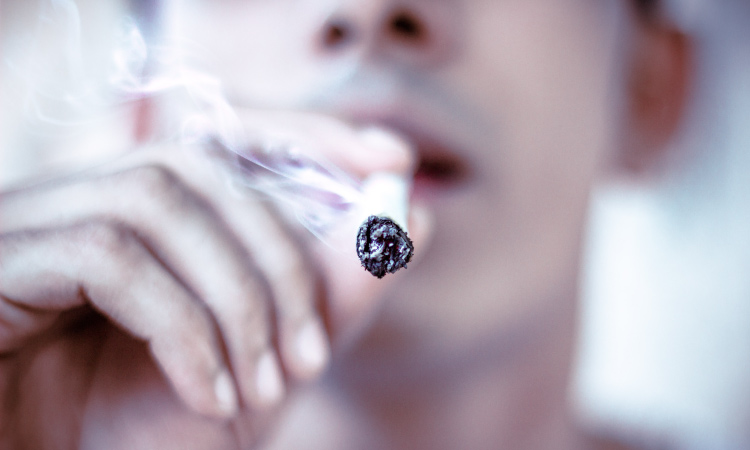Oral cancer is a serious medical condition that Dr. Hooks can screen for through a visual and physical exam. Read on to discover why screening for oral cancer is so important and what to expect during the exam.
What Is Oral Cancer?
Oral cancer is life threatening if it’s not treated early. Also known as mouth cancer, oral cancer appears as a growth or sore in the mouth that doesn’t go away. If you use tobacco, drink alcohol, were overexposed to the sun at a young age, have a family history of cancer, or have human papillomavirus (HPV), you should have regular oral cancer screenings because you are at increased risk of developing oral cancer.

What Are the Signs & Symptoms of Oral Cancer?
If you are experiencing any of the following, contact us right away so we can perform an oral cancer screen:
- Oral swelling & lumps
- Unexplained bleeding in the mouth
- Rough spots on the gums, lips, or other areas of the mouth
- Difficulty chewing or swallowing, speaking, or moving the tongue or jaw
- Persistent sores on the face, mouth, or neck that don’t heal within two weeks and bleed easily
- Development of white, red, or speckled patches in the oral cavity
- Unexplained numbness & loss of feeling
- Pain in the mouth, face, or neck
- Chronic sore throat
- Ear pain
What Is an Oral Cancer Screen?
An oral cancer screen will examine the neck, face, lips, and inside the nose and oral cavity. There are two types of oral cancer screens: visual and physical.
- Visual Exam
- Physical Exam
During the visual exam, Dr. Hooks will check for asymmetries, swellings, bumps, unusual patches of color, ulcerations, and other abnormalities. He will use a light and mirror to look inside your nose and mouth, and a tongue depressor to hold down your tongue while he looks at the back of your mouth. He’ll also examine your gums, inner cheeks, roof of the mouth, tonsils, throat, and underneath your tongue.
Once the visual exam is complete, Dr. Hooks will perform the physical oral cancer screen. He will feel for masses or nodules by examining your head and cheeks, around your jaw, under your chin, and in the oral cavity. The physical exam is also meant to gauge whether pressure to those areas causes you any pain.

What Happens After My Oral Cancer Screen?
If nothing is discovered during your oral cancer screen, we’ll ask you to return at regular intervals for further screening, especially if you are at risk from alcohol or tobacco use and your family’s medical history. If we detect anything of concern during the exam, we’ll refer you for further testing to determine whether or not it’s oral cancer.
How Can I Protect Myself From Oral Cancer?
Early diagnosis of oral cancer is vital so do not hesitate to schedule an appointment with us if you think you need an oral cancer screen. We also recommend quitting or avoiding tobacco use and limiting your consumption of alcohol to decrease your risk of developing cancer. Contact us for more information about the oral cancer screen or for tips to protect your oral health!
Contact Us Today